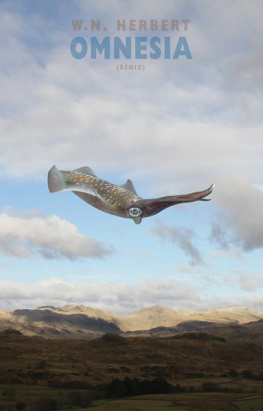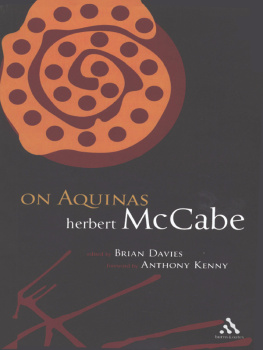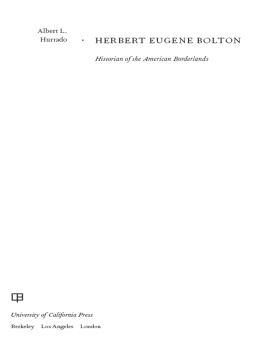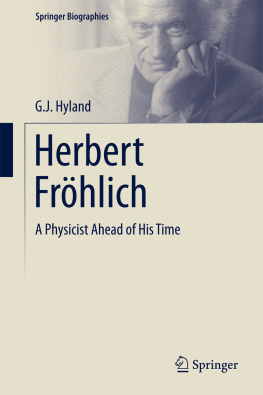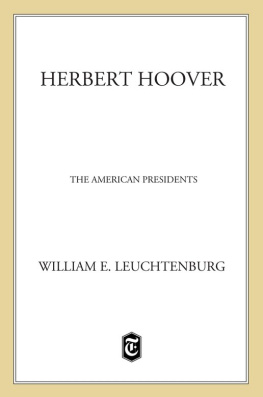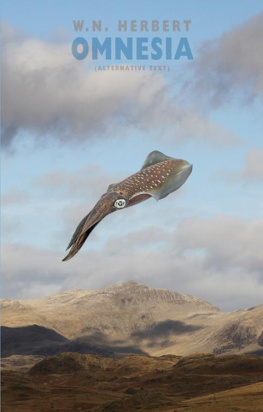W.N. Herbert - Omnesia
Here you can read online W.N. Herbert - Omnesia full text of the book (entire story) in english for free. Download pdf and epub, get meaning, cover and reviews about this ebook. year: 2013, publisher: Bloodaxe Books Ltd, genre: Detective and thriller. Description of the work, (preface) as well as reviews are available. Best literature library LitArk.com created for fans of good reading and offers a wide selection of genres:
Romance novel
Science fiction
Adventure
Detective
Science
History
Home and family
Prose
Art
Politics
Computer
Non-fiction
Religion
Business
Children
Humor
Choose a favorite category and find really read worthwhile books. Enjoy immersion in the world of imagination, feel the emotions of the characters or learn something new for yourself, make an fascinating discovery.
- Book:Omnesia
- Author:
- Publisher:Bloodaxe Books Ltd
- Genre:
- Year:2013
- Rating:5 / 5
- Favourites:Add to favourites
- Your mark:
- 100
- 1
- 2
- 3
- 4
- 5
Omnesia: summary, description and annotation
We offer to read an annotation, description, summary or preface (depends on what the author of the book "Omnesia" wrote himself). If you haven't found the necessary information about the book — write in the comments, we will try to find it.
Omnesia — read online for free the complete book (whole text) full work
Below is the text of the book, divided by pages. System saving the place of the last page read, allows you to conveniently read the book "Omnesia" online for free, without having to search again every time where you left off. Put a bookmark, and you can go to the page where you finished reading at any time.
Font size:
Interval:
Bookmark:
Herberts Omnesia is riven by the anxiety of incompletion: it is two variations desiring to be one theme; doppelgngers haunted by the idea of a whole neither can embody or know. Which one are you reading? The very form of Omnesia is innovative and intimately related to his creative concerns. The book comes as two distinct books, dubbed the AlternativeText and the RemixThe two books arent halves of one whole. The real poem might be stranded in the limbo between them, ever out of reach (in some ways this aligns Herbert more with a poet like John Burnside). There is no definitive or original version. That seems to me to be an attitude and ideology worth taking forward into the 21st-century Scotland
STUART KELLY , The Scotsman.
COVER ART Flying Squid Express (2012) by Mark Husmann In Memoriam
Maxamed Xaashi Dhamac Gaarriye (1949-2012)
That is, I go with the emphatic flow of its inspirations, I forget everything a poem should be, and improvise its subjects, its themes, its forms and tones, but at the same time I am constantly trying to orchestrate these into a whole, thinking of them as sections that contrast, complement and speak to each other. This echoes my reading experience, in which any book that has moved, troubled or changed me begins to exist as one version in my head, and another in my hand. To the extent to which it has such an effect, it becomes my book, and begins to be imagined as a collaboration between myself and the author, or by a sort of third mind that knows what we both know. Then, when I re-read the actual book, I find there is so much I have forgotten, or overlooked , or mistaken, that it has become yet another book. These two versions then enter into further dialogue. While I was writing Omnesia or rather while I was lying on a bed daydreaming before an event at the Curt Festival in Galway I began to wonder if these various dynamics could be embodied in two physically distinct but twin-like books.
In my first Bloodaxe volume, Forked Tongue, I had suggested the principle of And not Or to position a poetic of variousness in a market that favours (if not fetishises) concision and restraint. All my books since have been doubled linguistically, stylistically or thematically. Omnesia takes that principle one step further: the various sections in each volume mirror, juxtapose, continue or contrast. Hopefully, they make one sense read in isolation, and a further read together. What this interrelation does not appear to be is a dialectic it is not that debate between thesis and antithesis which our media loves, creating pantomime oppositions in order to pitch common sense against complexity. Its more like the dance between ideas we encounter in the ancient mode of strophe and antistrophe, each step taking the step it echoes and reflecting it onto another level: the epode arises from this, not as a matter of logical synthesis, but as news from nowhere.
Of course, you neednt concern yourself with this unless it engages you: this volume can be read by itself, and only if you are at all moved, troubled or changed need it be considered in conjunction with its non-identical twin. I hope you are (moved, troubled or changed), not least because it will double my sales, a consideration I should confess occurred to me almost immediately after the principles outlined above. Even the forgetting of something, in which every relationship of being towards what one formerly knew has been obliterated, must be viewed as a modification of the primordial being-in; and this holds for every delusion and for every error. HEIDEGGER I think you dont believe half the lies Im telling you. WILLIE CLANCY
In the mouth they were soft fibre, nut butter, like the engorged gills of oyster mushrooms. The last time I stared at their fluted spaulders was on a little chapeled island where experts prised open coffins shells on the little skeletons of pilgrims medieval Lucies, eyeless hominids, hobbit-Catholics, peregrines caught mid-flight from Finisterre, their holy route now shielded from our feet, our eyes by historys nacre, that slug-slow translator of mendicant and seeker whatever they savoured, no matter their sins or skills into drifters, tourists. And on every sternum like an emblem as if grafted by a byssus onto bone, that fossil wing, fanned hands-width shelter for each souls nub: a scallop.
Font size:
Interval:
Bookmark:
Similar books «Omnesia»
Look at similar books to Omnesia. We have selected literature similar in name and meaning in the hope of providing readers with more options to find new, interesting, not yet read works.
Discussion, reviews of the book Omnesia and just readers' own opinions. Leave your comments, write what you think about the work, its meaning or the main characters. Specify what exactly you liked and what you didn't like, and why you think so.

